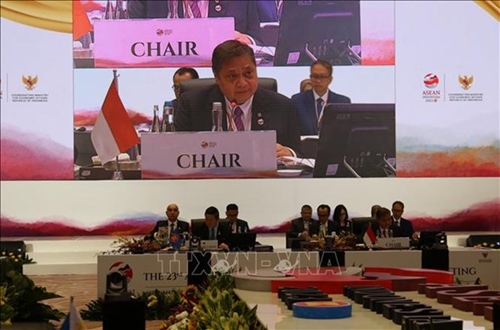The forum, held recently on the sideline of the 43rd ASEAN Summit, focused on strategic ideas and comprehensive thinking regarding emissions reduction, affordable energy transition, decarbonization strategies, and sustainable financing.
    |
 |
|
At the ASEAN Climate Summit |
According to Hartarto, the Southeast Asian region will be affected by climate change and could potentially lose around 30% of its gross domestic product (GDP) by 2050 due to increasing global temperatures and extreme weather events.
Therefore, greenhouse gas emissions in Southeast Asia need to be reduced by 10% to 25% by 2030 to limit global warming to 1.5 degrees. To achieve this, joint cooperation by the government and the business sector is needed now, he stressed.
Currently, parts of the ASEAN region have committed to a zero-emission target. The use of electric transport and renewable energy will also be critical for the region to meet its decarbonization commitments, he said.
ASEAN countries agreed to develop an electric vehicle ecosystem and become an important part of the world's supply chain, with their industry playing a significant role in this plan, he added.
In addition, the development of electric vehicles can play a major role in environmental sustainability, starting from reducing greenhouse emissions, accelerating the energy transition, decarbonizing the land transportation sector to achieve the zero emissions target, and increasing energy security in the ASEAN region.
He said that a shift to electric vehicles is important not only in ASEAN but also at the global level due to its advantages in energy diversification and emission reduction.
The ASEAN Summit also agreed to explore cooperation and collaboration in the development of the electric vehicle ecosystem, he added.
He said that the cooperation includes improving infrastructure and charging stations, creating a business environment and investment climate to attract investment, and encouraging public-private partnerships.
Source: VNA